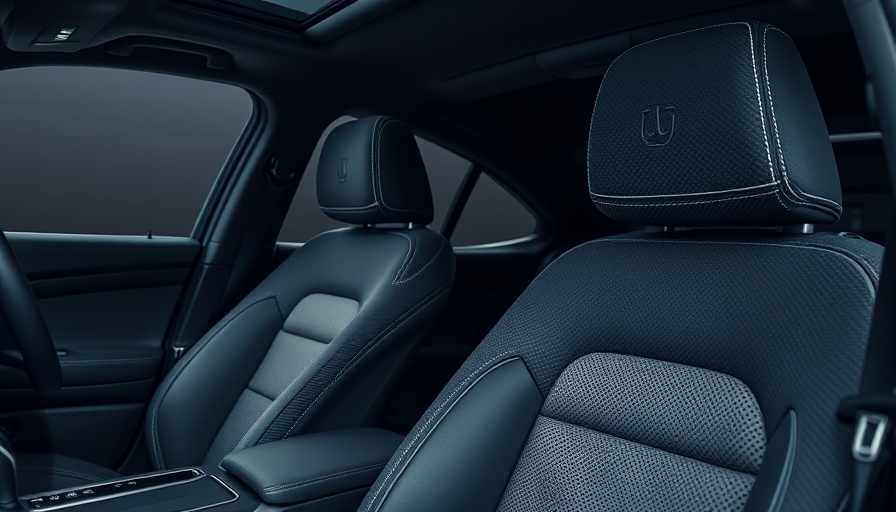
The Future of Remote Work: Driving Innovation
Imagine a world where working from your car seamlessly integrates into your daily routine. This is becoming a reality with Mercedes-Benz's partnership with Microsoft to introduce Microsoft Teams into their vehicles. Now, driving could mean just as much as attending a video meeting. This shift raises essential questions: How will this impact our work-life balance and, more critically, our road safety?
Changing the Face of Travel: Cars as Mobile Offices
The integration of Teams into the latest Mercedes model, the CLA, signals a shift in how we view commuting. With the car becoming a mobile workspace, conversations around productivity will likely redefine travel norms. Imagine being able to participate in meetings while on the road. However, for homeowners in the MidSouth, where commuting times can add up, this poses opportunities for flexibility but also raises concerns about distractions.
The Limitation of Safety Regulations and User Experience
With Mercedes-Benz claiming compliance with vehicle safety standards, the addition of video features presents an intriguing dilemma. The association of rear-view cameras with enhanced safety stands in contrast to the apprehension surrounding distracting features in vehicles. What is the balance between working and driving? Could it lead to a culture where multitasking takes precedence over safety? Post discussions on social media highlight that while increasing functionalities may sound beneficial, they could lead to greater consequences if not managed correctly.
Work-Life Integration or Distraction?
For MidSouth homeowners who are deeply invested in creating positive environments, the idea of merging work with personal travel may be both welcoming and alarming. On one hand, having flexibility could mean more time for family and activities without sacrificing work responsibilities. On the other hand, having work-related functions available while driving might lure users into believing they can manage both at once. The potential impact on mental health and wellness cannot be understated; how do we retain a clear boundary between work and personal life?
AI Integration: A New Era of Mobile Work
Furthermore, Mercedes’ exploration of Microsoft’s AI, Copilot, could transform how tasks are managed while driving. Functionality such as voice-controlled inputs and scheduled notifications might sound innovative, yet the underlying question remains—will this technology enhance our productivity, or will it lead to tunnel vision, increasing stress levels in an already fast-paced world? Navigating these tools with an awareness of their potential impact on our well-being is crucial.
Consumer Response and Market Dynamics
Consumer responses to these innovations vary, with many conflicting opinions circulating through social media platforms. Some celebrate the convenience of a mobile office while others express concern regarding safety and the boundaries of personal time. As these features roll out, it is essential for parents and professionals in the MidSouth to be engaged in discussions around these technologies. Is there room for negotiation and change, or will feature overload lead to consumer backlash?
Conclusion: Rethinking Commuting in the MidSouth
As Mercedes-Benz inches closer to enabling work from your car, it serves as a reminder that we need to rethink our commuting culture. But should we embrace it, or are we headed toward a future where our personal lives compete with work more than ever? The lines between downtime and work will undoubtedly continue to blur, leaving us to find a resolution that honors our dedication to both work and wellness.
To navigate this new era of mobility and productivity safely, participants within our communities need to hold discussions on how best to adapt to these changes. Are we ready to redefine our relationship with work and improve our daily routines for a more balanced lifestyle?
 Add Row
Add Row  Add
Add 



Write A Comment